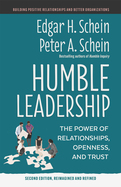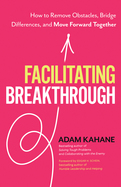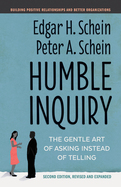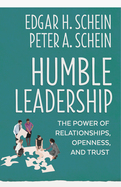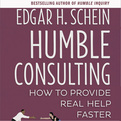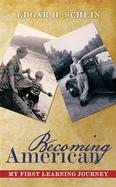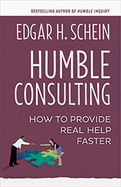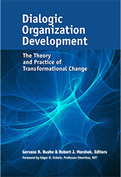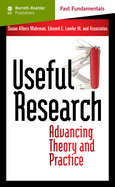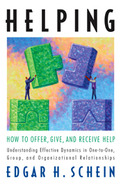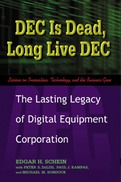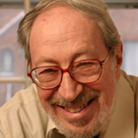

Edgar Schein
USA
Contact Edgar Schein
THE AUTHOR, IN HIS OWN WORDS
My newest book, Humble Leadership, which was co-authored with my son Peter, brings together 50 years of work on culture and leadership. After undergraduate training at the University of Chicago and Stanford, my Ph.D. training at Harvard’s Department of Social Relations in the early 1950s was as an experimental social psychologist. I then spent four years at the Walter Reed Army Institute of Research and began a gradual process of becoming more interested in the sociological details of what goes on between people in various kinds of relationships.
My first major research was on the indoctrination of military and civilian prisoners of the Chinese Communists (Coercive Persuasion, 1961), which led to an examination of such indoctrination in large corporations when I became a professor at the MIT Sloan School of Management in 1956. It seemed obvious to then study the process of interaction of the individual with the organization, which led to the successful coauthored book, Interpersonal Dynamics (coauthored with Warren Bennis, Fritz Steele, David Berlew, and later John Van Maanen, 3rd ed. 1973) and later, an integrated text that helped to define the field (Organizational Psychology, 3rd ed. 1980).
Through a 15-year panel study, the indoctrination and socialization research led to the discovery that in an open society, like the United States, individuals will exercise choices and be able to shape their careers around strong self-images or “career anchors” (Career Dynamics, 1978; Career Anchors, 4th ed. coauthored with John Van Maanen, 2013).
Working with Group Dynamics workshops in Bethel, Maine and consulting with Digital Equipment Corporation led to the concept of process consultation and the important discovery that the best path to helping people learn is to ask the right questions and let them figure it out. I first spelled this out in 1969, as a contribution to consultation methodology (Process Consultation, 1969; Process Consultation Revisited, 1999), and found that it applies in many interpersonal situations, especially when we try to give or receive help.
All of these processes happen within a culture, so a more detailed study of organizational and occupational cultures led to intensive work on corporate culture—how to think about it, how to change it, and how to relate culture to other aspects of organizational performance. With Organizational Culture and Leadership (5th ed. with Peter Schein, 2017) and The Corporate Culture Survival Guide (2nd ed. 2009), I helped to define the field.
The role of leaders as both creators and, ultimately, victims of culture led to more detailed analyses of interpersonal processes and to two empirical studies of organizational cultures—Strategic Pragmatism: The Culture of Singapore’s Economic Development Board (1996) and DEC Is Dead, Long Live DEC: The Lasting Legacy of Digital Equipment Corporation (2003).
The years of consulting, teaching, and coaching inevitably led to the realization that some processes such as Helping were not well understood and often poorly practiced. The book Helping: How to Offer, Give, and Receive Help (2009) was thus an attempt to both analyze and improve that process. Within that analysis, I realized Humble Inquiry is not just necessary when we give or receive help, but it is a more general form of asking that builds relationships. I realized further that building positive relationships is at the core of effective communication and getting work done safely and well.
Building personal relationships has to be done rapidly in this fast paced world, so I wrote Humble Consulting (2016) to illustrate how this has worked in my own consulting. My son and I then realized that, together, we could collect these ideas into a book on leadership that dealt with the current realities of complexity and the need for more collaboration through highlighting the importance of building personal relationships in organizations and working more effectively with groups.
AUTHOR AWARDS
Ed has been recognized for his work with the Lifetime Achievement Award in Workplace Learning and Performance from the American Society of Training Directors (2000), the Everett Cherington Hughes Award for Career Scholarship from the Careers Division of the Academy of Management (2000), the Marion Gislason Award for Leadership in Executive Development from the Boston University School of Management Executive Development Roundtable (2002), the Lifetime Achievement Award as Scholar/ Practitioner from the Academy of Management (2009), and the Lifetime Achievement Award from the International Leadership Association (2012).
After 48 years at MIT and losing his wife in 2008, Ed moved to Palo Alto in 2011, where he is retired but still writing. He has three children and seven grandchildren who live in Seattle, New Jersey, and Menlo Park, California. You can reach him via his e-mail at [email protected].
Making progress on complex, problematic situations requires a new approach to working together: transformative facilitati...
This worldwide bestseller offers simple guidance for building the kind of open and trusting relationships vital for tackl...
Bestselling author and father of organizational culture studies, Edgar Schein and Peter Schein trail-blaze with a creativ...
In his new book, bestelling author and professor emeritus at the MIT Sloan School of Management, Edgar Schein, outlines t...
How did Edgar Schein's personal background shape his crucial research work in organizational psychology?
from BK Fast Fundamentals
Helping others is one of the most universal things that people do every day in their work and lives. Yet often this help...


